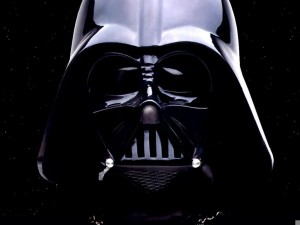 Folks, we have a special treat for you today. The extremely talented and charming thriller writer Tim Maleeny has graciously joined us. Read on to discover what villainy lurks beneath his seemingly cheerful demeanor…and remember, comment to be entered in a drawing for a $50 gas card!
Folks, we have a special treat for you today. The extremely talented and charming thriller writer Tim Maleeny has graciously joined us. Read on to discover what villainy lurks beneath his seemingly cheerful demeanor…and remember, comment to be entered in a drawing for a $50 gas card!
This past week has been dedicated to villains we love:
Con men who seduce us into parting with our life’s savings, charismatic academics who persuade us to invite them over for dinner and then eat our livers. Smiling politicians who pretend to be our neighbors and then turn out to be, well, politicians.
All variations on a theme, all creatures with an innate magnetism that draws us towards them when every rational instinct is telling us to run away. It’s no wonder the consensus among writers is that you can’t have a great story without a great villain.
So here, for your consideration, are some rules of thumb for keeping your villains suitably loathsome over time.
OK, this guy gives me the creeps, but he is kinda cool…
A lot of first-time novelists — and many bad Hollywood films — make the mistake of painting villains in two dimensions, with no redeeming or aspirational qualities. But if you think about your favorite bad guys, many of whom have already been mentioned in this killer blog by other authors, the villains are pretty damn interesting.
Often it’s their power. Darth Vader might be evil, but he sounds like James Earl Jones and can choke a guy from across the room, just by bringing his fingers together. Who doesn’t want that power the next time their boss (or spouse) berates them?
Sometimes it’s their charm. Think of Alan Rickman in the first Die Hard mov ie. Smart, funny, even likable — but still a convincing villain willing to kill scores of people just to steal some money. Now try to remember the bad guy in the second Die Hard movie, then give up immediately because it sucked. The series didn’t get back on track until they brought some personality back to the villains.
ie. Smart, funny, even likable — but still a convincing villain willing to kill scores of people just to steal some money. Now try to remember the bad guy in the second Die Hard movie, then give up immediately because it sucked. The series didn’t get back on track until they brought some personality back to the villains.
Bigger and better
It’s not only OK, it’s essential that the villain be better than your protagonist in some way — smarter, stronger, perhaps more money or charm. Or perhaps just more determined.
Lex Luthor is a lot smarter than Superman. The Joker less conflicted than Batm an. Hannibal Lecter is less prone to acid reflux than Special Agent Starling.
an. Hannibal Lecter is less prone to acid reflux than Special Agent Starling.
But it’s the contrast that’s important, the juxtaposition of qualities you loathe with characteristics you wish you had. A great villain makes you hate them at a visceral level because, deep down, part of you envies them as well.
Don’t fall in love
Your antagonist is not your protagonist. Say this again like a mantra before you write another chapter.
Caveat — this isn’t about all the superb novels and films in which a flawed character follows an arc of redemption — recognizing that most great stories since The Odyssey have been about that inner quest. This is about writers who fall in love with their villains to the point that they sacrifice some of the moral repugnance needed as an essential ingredient for a memorable bad guy.
(Easy example is Hannibal Lecter in any of the titles written after Red Dragon and Silence Of The Lambs. If those books had been written first, he wouldn’t be the icon of evil he is today.)
I want to be intrigued by your villain, but I also want to feel some self-loathing or fear at my own attraction to him.
The killer inside me is also inside you
I believe reading or writing crime fiction is cathartic. It is the literary genre driven by a moral compass that finds true North in the heart of the characters. Ordinary people in extraordinary circumstances making impossible choices.
Crime fiction can also reinforce a set of values shared by most people but which often aren’t politically correct. Reading Lee Child might satisfy your own personal sense of justice that’s frustrated by the countless slights and indignities of everyday life. Reacher can do the things you only imagine doing but which you know are right. Rules or no rules, he’ll see that the right thing gets done.
But another great aspect of crime fiction is that it lets you work out your inner demons, especially the ones you didn’t know were there. It’s a sidelong glance in the mirror for those of us who don’t always want to look ourselves in the eye when shaving. That’s where the villains come in.
The b rilliant Patricia Highsmith demonstrated with The Talented Mr. Ripley that every character believes he or she is in the right. They might be acting out of necessity, ambition, or some twisted sense of honor, but most villains don’t see themselves as being in the wrong, not in the absolute sense. I’m protecting my family has been a great defense for everything from bank fraud to suicide bombing.
rilliant Patricia Highsmith demonstrated with The Talented Mr. Ripley that every character believes he or she is in the right. They might be acting out of necessity, ambition, or some twisted sense of honor, but most villains don’t see themselves as being in the wrong, not in the absolute sense. I’m protecting my family has been a great defense for everything from bank fraud to suicide bombing.
Under the right (or wrong) circumstances, any of us is capable of doing horrible things. Great villains give you goosebumps not for what they do, but because something about them sends a frisson of recognition up your spine.
For one terrifying moment you saw yourself in them, and you felt the blood on your hands. And much to your horror and secret delight, it felt damn good.
Happy reading. See you in hell.
Special Note: Join us next Sunday, August 31 when our guest blogger will be international bestselling author and International Thriller Writers VP, David Hewson.
